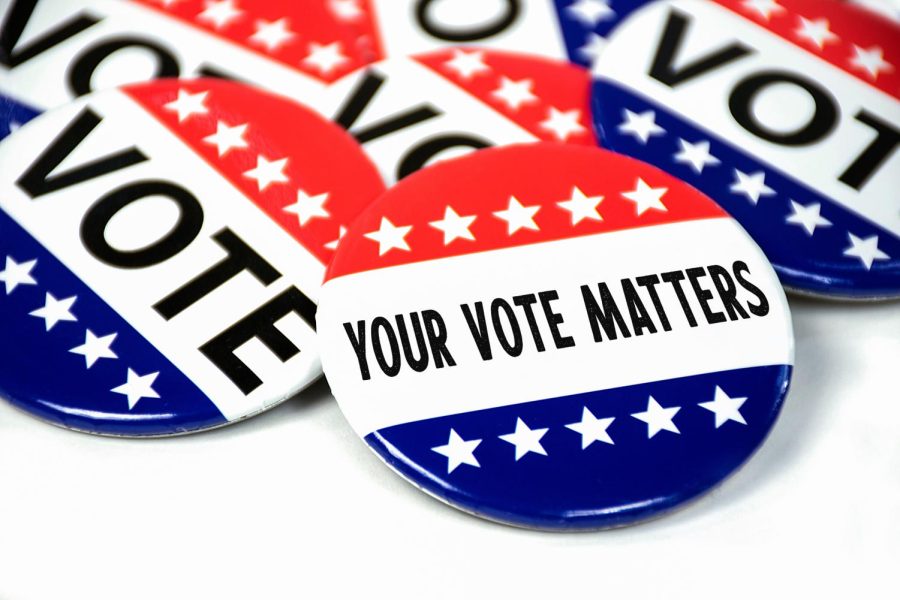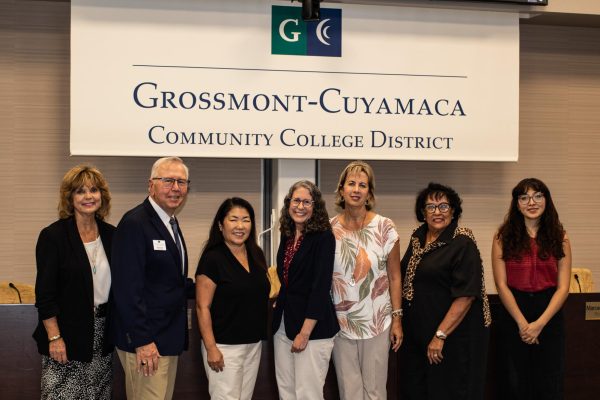Election Spotlight: Ballot Initiatives
With proposition campaign ads battering the airwaves, election season is in full swing.
October 20, 2022
Nov. 8 is fast approaching, so for the next month, students and staff at Grossmont Community College can expect to be increasingly bombarded with commercials and text messages from political campaigns of all stripes.
Ballot propositions especially seem to dominate the media airwaves with near-constant advertisements for a ‘No on’ this and ‘Yes on’ that, which can feel overwhelming and confusing for the prospective voter. To organize some of that confusion, this article highlights each ballot proposition and provides a brief, objective overview of their potential effects if passed into law.
All information on the voter initiatives has been gathered directly from the California Secretary of State’s website.
Proposition 1 – Constitutional Right to Reproductive Freedom
Designed as a constitutional amendment and an extension of California’s current right to privacy, this initiative would strengthen reproductive liberties in the state by enshrining the existing laws into the state constitution. If passed, it would make it much harder for the state to restrict access to services and products such as abortion or contraceptives. It could also act as a countermeasure against a theoretical federal ban. Whether or not voters approve Prop 1, California’s current laws on abortion and contraceptives will remain unchanged.
Proposition 26 – In-Person Roulette, Dice Games and Sports Wagering on Tribal Lands
One of two legal sports gambling ballot propositions, if passed Prop 26 would make in-person sports betting legal at select racetracks and tribal casinos. Tribal casinos would also be allowed to offer roulette and games played with dice if voters approve the initiative. Fiscally, Prop 25 could increase state revenue by tens of millions, which could fund regulatory and enforcement costs. It would also provide private individuals and entities with new ways to seek enforcement of gambling laws through lawsuits.
Proposition 27 – Online and Mobile Sports Wagering Outside Tribal Lands
The second of the two sports gambling initiatives, Prop 27, differs from 26 in that rather than legalizing sports gambling strictly on tribal lands, it would be permitted online and on mobile gambling apps. Californians 21 years of age or older could participate in sports gambling on major sportsbooks like FanDuel and Draftkings, both of whom are significant supporters of this ballot initiative. Those providing the betting service would be required to pay the state a share of sports bets made, which would be directed to regulatory costs, homelessness programs and non-gaming tribes. A new state unit will also be created to regulate state betting if the initiative is approved.
Proposition 28 – Additional Funding for Arts and Music Education in Public Schools
More straightforward than the other initiatives up for a vote this election season, Prop 28 says precisely what it is. If the electorate approves, additional funding, specifically for arts education, would be provided to public schools. The costs for this additional funding are estimated to be around $1 billion annually for the state.
Proposition 29 – On-Site Licensed Medical Professional at Kidney Dialysis Clinics
Prop 29 is a healthcare-based initiative statute drafted to improve the quality of dialysis care in California. If it were to be approved, the proposed law would require dialysis clinics to have a physician, nurse practitioner or physician assistant on-site during treatment. Clinics may apply for a one-year exception to the law on the grounds of a shortage of qualified medical staff to oversee the care process. Prop 29 would also require disclosure of infection date and any ownership share physicians may have in providing clinics to reveal any potential conflict of interest.
Proposition 30 – Funding for Programs to Reduce Air Pollution and Prevent Wildfires by Increasing Tax on Personal Income Over $2 Million. Initiative Statute
Increasing income tax by 1.75 percent on personal income above $2 million annually will provide between $3.5 and $5 billion of new state revenue, specifically for zero-emission vehicle programs and wildfire response and prevention. Prop 30 acts as a fiscal and environmental action bill, providing new funding for the state on the condition that it be reserved for the environmental policy objectives of the prospective law.
Proposition 31 – Flavored Tobacco Products Ban
The single referendum among the seven ballot initiatives, Prop 31, allows California voters to weigh in on a 2020 law prohibiting the sale of certain flavored tobacco products. Voting yes on the referendum would approve it for passage into law and outlaw the sale of flavored tobacco products and tobacco product flavor enhancers in stores and vending machines. A no vote on the referendum would effectively end the 2020 ban and allow in-person stores and vending machines to continue selling prior mentioned flavored tobacco products.














